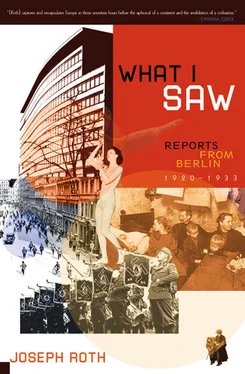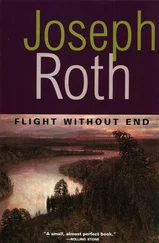Now, as the smoke of our burned books rises into the sky, we German writers of Jewish descent must acknowledge above all that we have been defeated. Let us, who were fighting on the front line, under the banner of the European mind, let us fulfill the noblest duty of the defeated warrior: Let us concede our defeat.
Yes, we have been beaten.
Now is not the time to reach for the laurels that will one day be ours. It would be childish to predict the ultimate victory of the human spirit over the rampant denizens of the Leuna-Werke, the “I.G. Farbenwerke”* and other chemical and industrial giants. We are proud of our defeat. We stood in the front row of the defenders of Europe, and we were the first to be defeated. Our comrades “of Aryan descent” can still hope to be pardoned (always assuming that they will be prepared to make some concession to the language of Goebbels and Göring). There is even a chance that the vandals of the Third Reich will try to exploit such “Aryan” writers of great renown as Thomas Mann and Gerhart Hauptmann (currently persecuted) for a while, in order to trick mankind into believing that National Socialism has some respect for the human spirit. But we writers of Jewish descent are, thank God, safe from any temptation to take the side of the barbarians in any way. We are the only representatives of Europe who are debarred from returning to Germany. Even if there were in our ranks a traitor, who, from personal ambition, stupidity, and blindness, wanted to conclude a shameful peace with the destroyers of Europe — he couldn’t do it! That “Asiatic” and “Oriental” blood which the current wielders of power in the German Reich hold against us will quite certainly not permit us to desert from the noble ranks of the European army. God himself — and we are proud of the fact — will not allow us to betray Europe, Christendom, and Judaism. God is with the vanquished, not with the victors! At a time when His Holiness, the infallible Pope of Christendom, is concluding a peace agreement, a Concordat, with the enemies of Christ, when the Protestants are establishing a “German church” and censoring the Bible, we descendants of the old Jews, the forefathers of European culture, are the only legitimate German representatives of that culture. Thanks to inscrutable divine wisdom, we are physically incapable of betraying it to the heathen civilization of poison gases, to the ammonia-breathing Germanic war god.
Have German writers of Jewish extraction — or for that matter German writers — ever felt at home in the German Reich? There is a justifiable sense that German authors, of Jewish or non-Jewish origins, have at all times been strangers in Germany, immigrants on home ground, consumed with longing for their real fatherland even when they were within its borders. From the time that Bismarck’s Second Reich gave physical, materialist, and military forces precedence over the life of the intellect, when the character of the drill sergeant was proposed and recognized by the world as the typical representative of Germany, from that time German writers have felt they were living in moral banishment and exile. Behind the sergeant stood the engineer who supplied him with weapons, the chemist who brewed poison gas to destroy the human brain, and at the same time formulated the drug to relieve his migraine; the German professor, falsely depicted in German humorous satirical magazines as an absent-minded dreamer who forgets his umbrella, but who is in fact the most dangerous (the most dogmatic) enemy of European civilization: the inventor of the philological equivalent of poison gas, who is paid to disseminate the idea of Prussian superiority, the noncommissioned officer of the university, which in the time of Wilhelm II became a barracks.
In the new German Reich the only free and independent people, the only revolutionaries in the proper sense, were the writers. Which is why, long before the advent of Hitler, they felt themselves to be émigrés and expatriates in that empire of technology, of corporals, of parades, and of standing at attention. If you want to understand the burning of the books, you must understand that the current Third Reich is a logical extension of the Prussian empire of Bismarck and the Hohenzollerns, and not any sort of reaction to the poor German republic with its feeble German Democrats and Social Democrats. Prussia, the ruler of Germany, was always an enemy of the intellect, of books, of the Book of Books — that is, the Bible — of Jews and Christians, of humanism and Europe. Hitler’s Third Reich is only so alarming to the rest of Europe because it sets itself to put into action what was always the Prussian project anyway: to burn the books, to murder the Jews, and to revise Christianity.
The great historical error of the younger generation in Germany was that it subjected itself to the Prussian drill sergeant, instead of joining forces with the German intellect. About 1900 Jews started to appear in Germany who were classified as “Kaiser Wilhelm’s Jews,” or “Jewish Prussians,” or “Jewish lieutenants of the reserve,” or even “Sunday Jews.” Without setting aside their religion, they tried to transform it into a kind of Protestantism, and their temples into Prussian barracks. They referred to themselves as “German citizens of the Jewish faith” and the fact that they chose the term “German citizens” instead of merely “Germans” goes to show that they themselves sensed that citizenship was a different category from people and nation. They had just about enough willpower not to repudiate the thousand-year-old tradition of their forefathers, but they lacked the strength not to falsify this tradition. Because they didn’t have the courage to convert, they preferred instead to have the entire Jewish religion baptized. The result was Jewish priests with a Protestant bearing and in Protestant costume; “Reformed Israelite communities” that worshiped on Sundays instead of the Sabbath; Jews who had themselves driven to temple — the house of a betrayed God — on Yom Kippur in luxurious carriages, dressed in the uniforms of Prussian lieutenants of the reserve; Jews who eventually came to view the “Jewish confession” as a state-authorized concession to Jehovah as a kind of twin of the Prussian god. . They felt entitled to take out a lease on “German civilization”; inconstant and fickle as they were, to introduce and to support literary and other “fashions”; undiscriminating as they had become, novarum rerum cupidissimi, * to admire every version of corruption in literature, in the visual arts, in the theater, because they had forgotten Jehovah; to profess liberalism and freethinking.
It would be true to say that, from about 1900, German cultural life was largely defined, if not dominated by this “top class” of German Jews. To be fair, what they did was not wholly bad. Even their errors were sometimes salutary. In the whole of that large kingdom with a population of sixty million, among all those industrialists, there was — individual exceptions aside — no class that was actively interested in art and intellect. As far as the Prussian Junkers are concerned, the civilized world will know that they were just about able to read and write. One of their representatives, President Hindenburg, openly admitted that he had never read a book in his life. And, incidentally, it was this icon, ancient from early youth, that the workers, Social Democrats, journalists, artists, and Jews worshipped during the war, and that the German people (workers, Jews, journalists, artists, Social Democrats, and the rest of them) then reelected president. Is a people that elects as its president an icon that has never read a book all that far away from burning books itself? And are the Jewish writers, scholars, and philosophers who voted for Hindenburg really entitled to complain about the bonfire in which our thoughts are consumed?
Читать дальше












